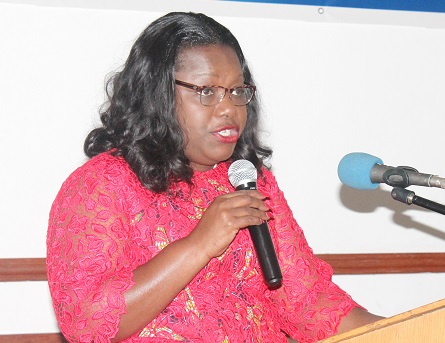
Ministry to adopt international standards for adoption, foster care
Ghana is formalising its foster care and child adoption procedures to conform to international standards.
Advertisement
To this end, the country has sent a formal request to the Hague to become a signatory to the Hague Convention.
The Minister of Gender, Children and Social Protection, Nana Oye Lithur, made this known at a meeting with the diplomatic community in Ghana on alternative care reforms on adoption and foster care in Accra.
The Hague Convention is about the protection of children and their families and cooperation among countries regarding adoption. It is an international agreement that enjoins signatories to establish safeguards to ensure that inter-country adoptions take place in the best interest of the child.
“The instrument of accession to the Hague Convention has been deposited at the Ministry of Foreign Affairs at Hague. It is expected to come into force three months after the date of laying, which was in April, 2016,’’ Nana Oye said.
As part of efforts to ensure that the country was compliant to the convention, Nana Oye said a bill to amend the Children’s Act 1998 would be laid before Parliament this week.
Amendment Bill
Nana Oye said key provisions of the amendment for the Children’s Act 1998 focused on centralising adoptions to ensure proper coordination of adoptions in the country to help minimise abuse of the system.
The act would also ensure the restriction of adoptions to the High Court to enhance monitoring of adoption applications and institutional capacity for the determination of adoption applications.
The amended act will, among other things, give a clear definition of a child who qualifies for foster care or adoption, with the primary requirement being that the child must be under the care order of a court.
Nana Oye said a regulation on adoption and foster care had been drafted and would also be presented to Parliament after the amended bill had been passed.
Gaps in Children’s Act
She said the government had to put a moratorium on all adoptions in the country in 2013 because the Children’s Act had a lot of loopholes from which people were profiting.
The country, she said, saw a surge in inter-country adoptions and that contributed to it being ranked among the top 20 countries with high adoption rates.
The moratorium, she said, was, therefore, a measure to allow for the needed space to strengthen alternative care system through structural reforms in order to conform with international protocols and best practices.
New requirements
The Head of the Central Adoption Authority, Ms Emily Akotia, in an address on the new requirements and procedures for foster care and adoption, said independent adoption or the process where relatives gave their children out for adoption would be made illegal in the country.
She said people would now have to apply to foster or adopt children through the Department of Social Development (DSD), which is under the Ministry of Gender, Children and Social Protection at the district levels.
She said a child could only be declared adoptable by the Central Adoption Authority and that before a child could be adopted, that child should be eligible and suitable for adoption.
Ms Akotia said all children who were eligible for adoption would have their names placed in a foster care register and an adoption register.
The Chair of the Gender, Children and Social Protection Committee of Parliament, Hajia Laadi Ayamba, in a statement, said the new procedure put in place would ensure that illegalities that were being experienced in the old adoption system were eradicated.
Writer's [email protected]




